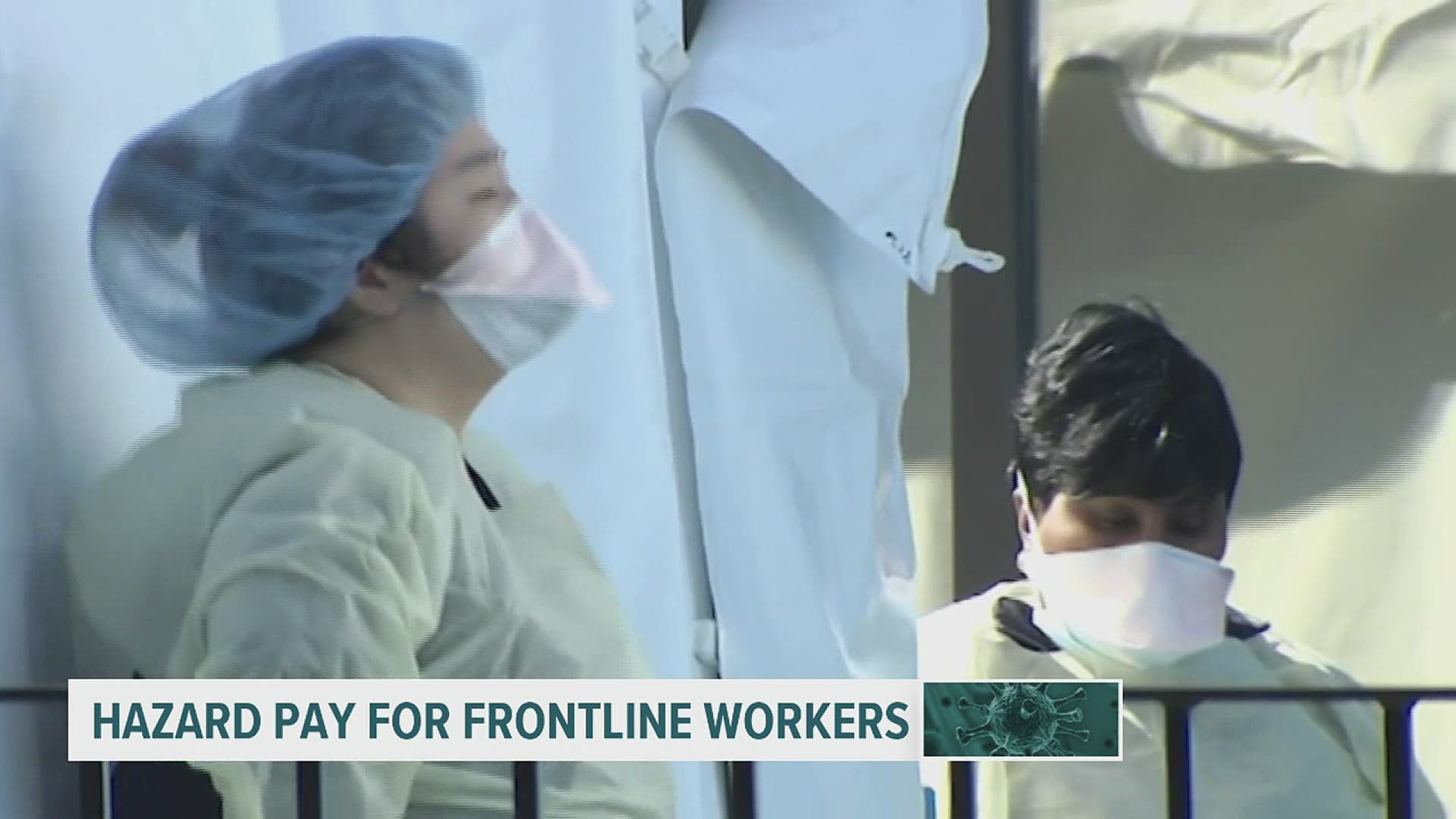HARRISBURG, Pa. — When schools shut down and business sent their employees home, people like Marlo Johnson never stopped working to make sure those buildings could safely reopen.
“We’re constantly disinfecting and sanitizing anything that anyone would frequently touch, even the actual door to a bathroom,” said Johnson.
Johnson works for Facility Concierge Services, a professional cleaning service based in Harrisburg. During stay-at-home orders, Johnson was among the frontline workers taking a risk of contracting the coronavirus to ensure other industries can safely welcome back their employees.
Her resilience goes beyond working through COVID-19—Johnson is a coronavirus survivor.
“I ended up being hospitalized for a few days. I could definitely tell you it’s really not a great experience,” Johnson said. “It took me a month and I ended up developing pneumonia from it. I was sick, but I tried to stay positive.”
Johnson sent light-hearted and silly videos to friends from the hospital bed to let them know she was going to be okay. In truth, she was worried. She had missed out on two weeks' worth of pay and started to dip into her savings to pay for doctor’s visits and medical bills.
Then, another twist of fate.
Johnson's employer, Facility Concierge Services, became one out of 639 life-sustaining businesses that were awarded a grant through the state’s COVID-19 Hazard Pay Program. The program allows companies to give essential workers who earn less than $20/hour a $3 per hour pay increase for 10 weeks.
Thousands of companies applied for these grants, but only a fraction of them were approved before funding ran out. Governor Tom Wolf called on state lawmakers to replenish the program with an additional $225 million in federal Coronavirus Aid, Relief and Economic Security (CARES) Act funding.
“These workers have gone above and beyond to provide vital services to the Commonwealth. They did it back then and they continue to do it now,” Governor Wolf said.
The hazard pay raise helped Johnson immensely, allowing her to cover outstanding medical expenses and start to rebuild her savings. She wasted no time getting back to work once she got the clearance from healthcare professionals and though the pandemic has created a tenuous landscape, Johnson's attitude will never sour.
“A positive mindset and a positive mental growth will help you a lot in just progressing in life in general,” Johnson said. “A lot of the [customers] are so supportive of the situation and they were constantly saying thank you and it just made me feel so appreciated as a worker to know that my hard work is being seen.”
The Department of Community and Economic Development (DCED), which administered the program, received more than 10,000 applications totaling nearly $900 million. Out of those applications, more than 5,000 businesses requesting $300 million were eligible. The program only had enough funding for 639 employers, who were awarded $50 million, supporting a $3 per hour increase in pay for 41,587 workers across the seven eligible industries:
- Health Care – 63.5 percent ($31.75 million)
- Food Manufacturing – 7.2 percent ($3.6 million)
- Food Retail – 8.2 percent ($4.09 million)
- Social Assistance – 12.6 percent ($6.3 million)
- Janitorial – 3.7 percent ($1.84 million)
- Transportation – 1.2 percent ($592,000)
- Security – 3.6 percent ($1.8 million)
For more information on the COVID-19 Hazard Pay Program, click here.

